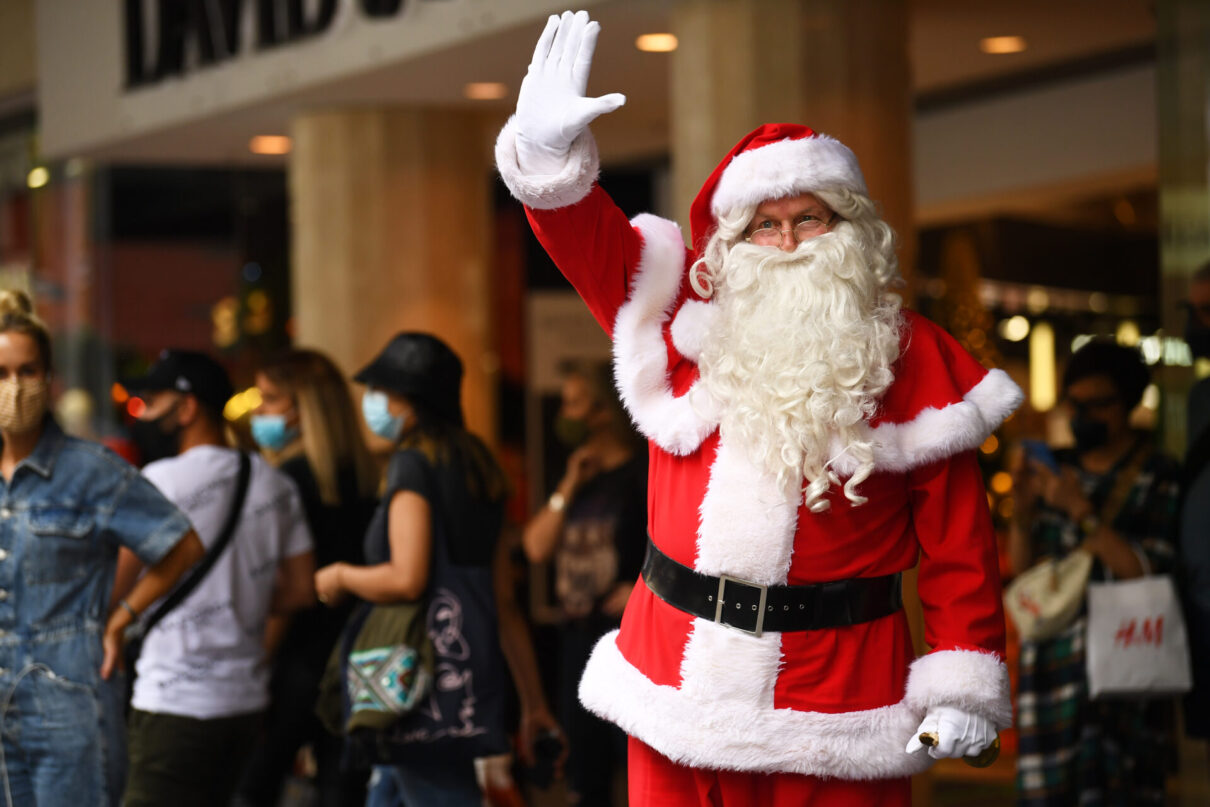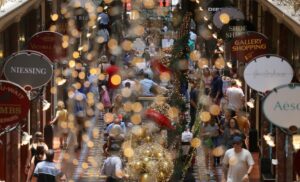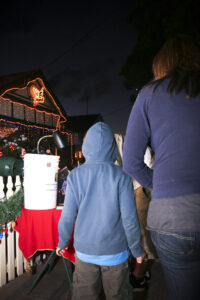Just what I’ve always wanted! How pretending to like gifts will cost Australians over $1 billion this Christmas

Do you relish the look of joy and surprise on the faces of loved ones when they open your Christmas presents?
What if you found out that your loved ones might have been pretending to like your gifts?
It turns out, most Australians prefer not to receive presents at Christmas. Moreover, about three out of ten people expect to receive Christmas gifts that they will never use or wear.
Christmas wouldn’t be the same without the spirit of generosity that manifests in gift giving.
This traditional holiday ritual usually plays out by presenting loved ones with gifts that we think they will like. And, in response to the act of kindness, the gift receiver often feels compelled to show gratitude for the act of kindness by feigning the look of joyful surprise to appease the feelings and efforts made by the gift giver.
Such is the dance that happens every Christmas holiday season.
This common dance happens with over three in four Australians (77%) according to a 2024 Christmas polling survey by The Australia Institute.
The look of joyful surprise, however, is likely, unfortunately, fake in many cases based on data from the same survey.
It shows that more than half of Australians would prefer it if people did not buy them gifts at all and 27% expect to receive Christmas presents that they will never use or wear.
This not only leads to billion-dollar financial waste in 2024, but it also creates significant material waste of products that will likely end up in landfill.
As a matter of fact, the survey showed that almost half of Australians (47%) don’t think about how the gifts they give will eventually be disposed of when purchasing gifts for others.
Wrapping paper and gift bags
Wrapping paper and gift bags are another contributor to Christmas waste with seven out of ten Australians (69%) buying wrapping paper and more than one in two Australians (52%) buying gift bags during Christmas, according to The Australia Institute’s 2024 Christmas polling survey.
Only one in four (24%) Australians re-use wrapping paper, while 15% put it in the rubbish bin. Half of Australians put used gift-wrapping paper in the recycle bin. Some wrapping paper can be recycled, and some cannot.
Australians use more than 150,000km of wrapping paper at Christmas time, which is enough to wrap around the planet almost four times.
Most wrapping paper cannot be recycled due to the varying nature of the materials used, such as glitter, foil, plastic coating and cellophane. Certain inks and dyes can also make some wrapping paper hard to recycle.
This means most wrapping paper ends up in landfill where it cannot decompose. A smaller portion of wrapping paper is recyclable. And, fortunately, recycling wrapping paper requires 40% less energy than making new paper from scratch.
On the downside, recycling plants often use electricity from fossil fuels, which can increase greenhouse gas emissions.
December, the month of waste supernova
Gift waste is not the only environmental impact of the holiday. The month of December produces high waste levels due to other holiday accoutrements such as wrapping paper, gift bags, Christmas crackers, excess food becoming waste, decorations, plastics, excess & holiday-printed clothing, textiles and other things
The Center for Biological Diversity revealed that Americans generate 23% more tonnes of waste in December than in other month of the year, according to a 2021 analysis. The data also stated that the United States creates 5.2 million tonnes more waste in December than in other months. This is the equivalent to 28,713 Boeing 747 airplanes.
Australia is the biggest consumer of textiles in the world per capita. Australians are also one of the biggest consumers of single-use plastics in the world per capita.
These statistics show that Australians have a strong overconsumption and waste culture, particularly with plastics and clothing, which are major aspects of holiday celebrations.
With Christmas being a time of hyper capitalism and overconsumption of material things, this would indicate that, like in the US, holiday waste levels are significantly higher in December as a result of Christmas celebrations.
The Australia Institute’s Christmas Waste polling report of 2023 estimated the total figure of Australia’s Christmas waste to be around 275,000 tonnes each year. This figure did not include unwanted Christmas presents.
Australians can be circular during the holidays
The good news is that Australians are displaying impressive levels of circular economy principles in some of the holiday paraphernalia, such as the re-use of gift bags. The Australia Institute 2024 survey revealed two in three Australians (65%) re-use gift bags.
In additional circular activity where food is concerned, three in four Australians (75%) keep leftover food from Christmas meals to eat another time, while only 7% throw it out. Food waste releases methane, a greenhouse gas which contributes to emissions. In last year’s Australia Institute Christmas polling survey, 85% of Australians planned to re-use their Christmas trees again from a previous year.
How to have a merry, sustainable and circular Christmas
As waste levels tend to peak during the Christmas holiday period, it gives a depiction of how intense our waste habits can get.
Shifting our Christmas waste culture could be a compelling pathway towards ending the excessive single use, throwaway and waste culture. And, ultimately embracing a circular economy Christmas holiday rather than a holiday that abides the linear take-make-waste system of production and overconsumption that contributes significantly to environmental degradation.
Adopting a more widespread circular economy Christmas celebration would be ideal for eliminating waste by purchasing fewer disposable items, reusing and repurposing materials for as long as possible to keep them out of landfill.
Here are some habits we can cultivate for a more sustainable and circular Christmas:
Ask your loved ones what they want for Christmas!
The most impactful thing we can do for this and in future Christmases is to imbibe the culture of asking our loved ones what they want for Christmas instead of guessing.
This will save Australians over a billion dollars in 2024 and keep significant amounts of waste from ending up in landfill. 3 in 5 Americans have lied about liking a gift they’ve received, according to a 2020 survey. Almost one-third of people who accepted a gift they didn’t like threw it in the trash based on a 2017 survey by YouGov US.
It’s time for a gift-giving culture shift that will allow our loved ones to be practical and honest about what they want. And, importantly, free them from having to pretend to like the unwanted gifts they are given.
The likelihood that they will keep and use the gifts for longer is much higher. Such honesty will be refreshing and beneficial for our relationships, budgets and the planet, because less stuff will go to landfill.
There’s also a possibility that it might bring a deeper meaning to Christmas and more joy for friends and loved ones.
Also, consider giving gifts that are more environmentally friendly. For instance, gifts that can be reused, repurposed, resold or recycled after the gift receiver has finished with it.
Christmas gift wrapping
Consider reusable fabric gift wraps instead of wrapping paper. Reusable fabric wraps can be reused for many years with little or no energy to maintain them. They can become the new wrapping tradition.
Reusable fabric wraps can come in the form of nice tea towels, secondhand scarves or even through repurposing and redesigning used clothing.
With this culture shift hack in gift wrapping, the fabric wrap also becomes part of the gift, especially if it has a nice design on it. Receivers can use them to wrap future gifts instead of spending money on wrapping paper or gift bags.
New rules for Secret Santa
Suffice to say that this game creates tremendous gift waste. The participants sometimes don’t know each other very well. And in many cases, the game is intended not be taken seriously, which elicits the purchasing of silly gifts that are often made from plastic or other non-recyclable material. And then used very briefly or not at all.
The way to circumvent waste from this game is by asking participants to regift previous unwanted gifts, purchase a secondhand item to gift or gift an existing item from home. This is keeping existing materials in circulation instead of purchasing brand new.
Decorations
Reuse old decorations or purchase secondhand items from op shops and online. Try your hand at DIY or making decorations from materials in nature. This way, they can potentially be composted at the end of life.
Christmas cards
Send E-cards, Christmas text messages and memes instead of buying physical cards that will be read momentarily then discarded.
Gift swap
Regift, donate or host a gift swap where people can bring and exchange unwanted presents as well as other reusable items such as toys, books, clothes, kitchenware, holiday decorations, etc.
Food
Where there is leftover food, refrigerate, freeze, preserve or compost food remains where possible.
Between the Lines Newsletter
The biggest stories and the best analysis from the team at the Australia Institute, delivered to your inbox every fortnight.
You might also like
Never used, never worn: the billion-dollar Christmas waste
More than a quarter (27%) of Australians will this year get a Christmas present they’ll never use or wear.
Carbon Myth Industry | Mark Wootton
Australian agriculture doesn’t have enough capacity to offset its own emissions, according to Mark Wootton from Jigsaw Farms.
There’s nothing naughty about being poor. Why Christmas is a horrible time for kids living in poverty
The busiest shopping weekend of the year is upon us, where shopping malls become a desperate frenzy of overindulgence and waste. But spare a thought for those who can’t afford even the trimmest of trimmings this Christmas.



